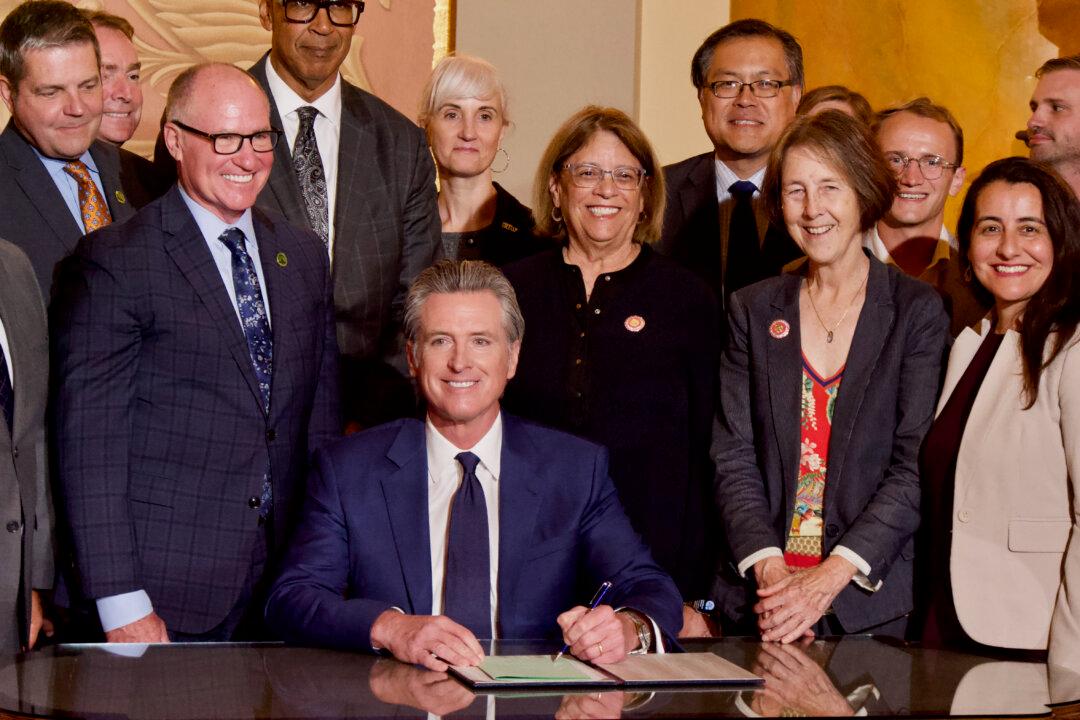California Gov. Gavin Newsom signed a bill on Oct. 14 that grants authority to regulate oil refiners by mandating minimum reserves with a goal of mitigating high gas prices.
“Price spikes have cost Californians billions of dollars over the years, and we’re not waiting around for the industry to do the right thing—we’re taking action to prevent these price spikes and save consumers money at the pump,” Newsom said in a press release. “Now the state has the tools to make sure they backfill supplies and plan ahead for maintenance so there aren’t shortages that drive up prices.”





